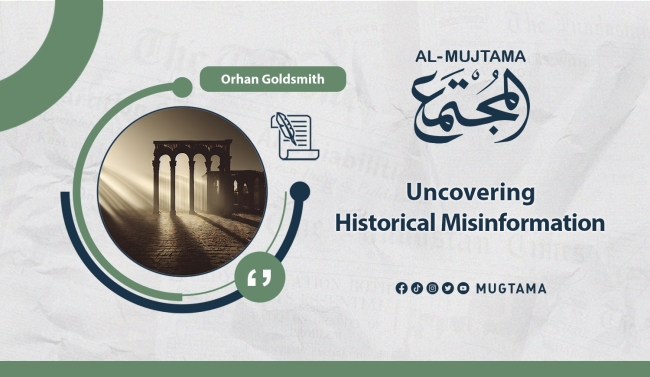Uncovering Historical Misinformation Featured
Have you ever heard of historical misinformation? It's when people purposely distort or change our history. This kind of misinformation has been around for a long time, even though we might think it is a new thing. It's like a science with its own theories, methods, and schools. People use historical misinformation to shape the way we think about the past.
Examples from the past
Let's look at some examples from history. In a book by Anatole France called "On the White Stone," a historian asks Madame Noseber about the saddest day in French history. She didn't know the answer, so the historian tells her it was the year 732 AD when the Muslims were defeated in the Battle of Poitiers. This event was seen as a victory for French civilization over Arab civilization. It's interesting to note that when a philosopher mentioned this book in Tunisia in 1945, the French governor expelled him for spreading propaganda against France. This shows how reminding people of their past can be seen as a threat by those in power.
In another example, a foreign physics professor in a North African country mentioned the innovative scientist Al-Hazan to his students. When one student asked who Al-Hazan was, the professor avoided mentioning his name. It's as if he didn't want to give credit to Al-Hazan for his theories. This kind of intentional omission can make people forget about the achievements of their ancestors.
Intentional misrepresentation
Now, let's talk about intentional misrepresentation. The League of Nations assigned England to govern Palestine through a Mandate Deed. This deed stated that the Mandatory State should focus on excavating and preserving pre-Islamic history and customs. Similarly, the French in Syria and Lebanon formed committees to write the history of the region, dividing it into different eras. These actions show how colonial powers wanted to shape the narrative of history to fit their own interests.
Even wealthy individuals like Rockefeller got involved in shaping history. He offered to donate 10 million US dollars to establish a museum of Pharaonic antiquities in Egypt, but with the condition that the museum be supervised by a committee that excluded Egyptians. When Egypt refused this condition, Rockefeller withdrew his donation. This shows how powerful individuals can try to control the narrative of history.
Modern-day examples
Historical misinformation is still happening today. In 1943, a conference for missionaries in Baltimore decided to focus on studying Islamic history in a way that portrayed certain movements as progressive and just, while criticizing the Islamic caliphate. This shows how even in recent times, people have tried to manipulate history to fit their own agenda.
Currently, there is a lot of controversy surrounding historical television series. Some powerful states are trying to stop certain series from being aired because they do not align with their version of history. This shows that historical misinformation is still a relevant issue today.
Therefore, it is important for us to be critical thinkers and question the information we receive about history. By uncovering historical misinformation, we can gain a better understanding of the past and make sure that different perspectives are heard.


